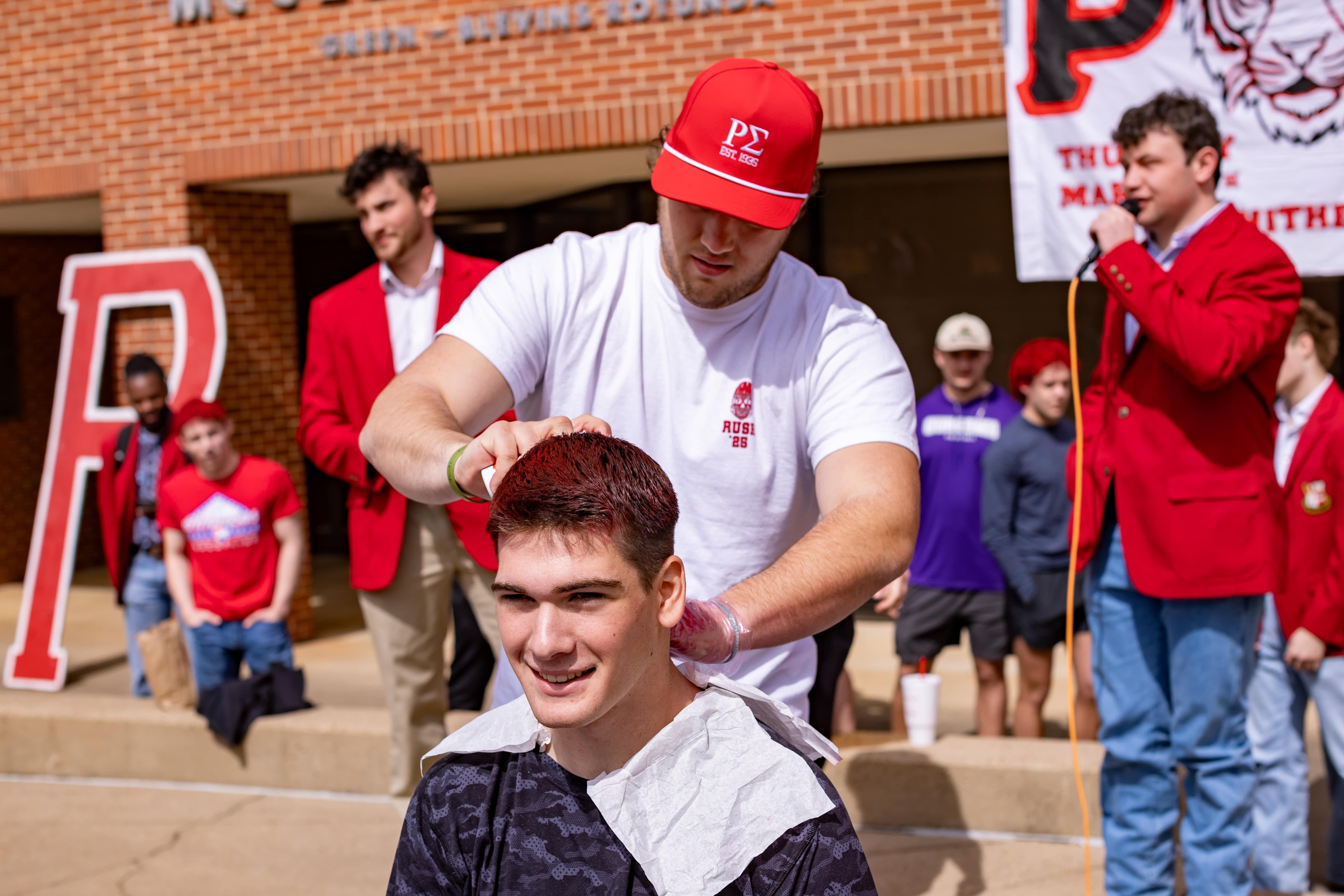It is that time of year again: the Little Rock Marathon is only one month away, which means that race training is in full swing for those who love torture. Training for a half marathon (13.1 miles) or a full marathon (26.2 miles) is a huge commitment in regards to time, energy and often sanity. What on earth could compel a person to take on such a feat, you may ask?
Freshman pre-medical major Tyler Williams, who is training for the full marathon, always ran to stay healthy and fit, but says that she wanted a specific goal to work for, so she decided on the full marathon.
“I can eat all the chocolate chip cookie dough ice cream I want without worrying about the freshman fifteen,” she said jokingly.
“I’ve always been more of a quick sprinter than a long-distance runner, and I figured that the process of Half-Marathon training would help me to achieve that goal- to improve my endurance,” said freshman pre-nursing major Katie Carroll. For her, signing up for the half marathon was a way to broaden her horizons.
“I decided to run the half marathon to get in shape and get back into the habit of running,” said Taylor Stanford, a senior chemistry major.
Stanford’s boyfriend, senior biology major Ryan James, said that he decided to run the half marathon because Stanford told him to do it with her.
While there are days when five miles feels like nothing, every runner certainly has their fair share of days when they question what they were thinking when they began this adventure in the first place. Runners know all about this — those days when it feels like you have weights tied to your ankles, and all you want to do is flop into your bed with a bowl of ice cream and your favorite season of “Psych.”
While some days will certainly be harder than others, here are some mistakes not to bother making:
• When it comes to running shoes, one size does not fit all. Be sure to buy shoes that work for your foot shape and the way that you run — some people have higher arches than others, and while one runner may have natural pronation, many runners are either over-pronators or under pronators. Whether you do the research yourself or visit a shoe store that watches you run before helping you choose a pair, be sure that you are aware of these variables before you swipe your card — save yourself the physical and financial pain that comes with poorly fitting running shoes.
• Eat First. Many runners skip this because they don’t want to be weighed down, but they often find themselves hitting a wall midway into their run. Tyler Williams says, “I like to eat something filling but not too heavy before I run. Usually it’s a turkey sandwich and an apple.” Depending on the length of your run, some other good options would be an orange, a protein bar, or oatmeal. Just make sure to eat something- you’ll need the energy later.
• Fuel while you run. While drinking water during your run is an absolute must, additional energy will be needed if you are running for more than 90 minutes. The options are endless- from sports jelly beans and protein bars to pretzels or candy, it all depends on what works best for you. Williams enjoys Jolly Ranchers during her run, saying that “the sugar gives a little burst of energy, and the flavor helps take my mind off the run.” Make sure to experiment with mid-run snacks on your longer runs during training, so that you’ll be prepared and confident in your snack choice on race day.
• Continue to hydrate after you run. I know, I know- after a long, excruciating run, all you want to do is forget everything and veg out — but hydrating after a run is just as important as hydrating during it. It’s crucial to replace the fluids that you lost during your run.
• Even the most hardcore runners need their beauty sleep. No matter how on-top-of-the-world you may feel after your run, stretch, grab your water and then give your mind and muscles a must needed break.
Maybe you are a non-runner that is thinking about training for a race in the future. Go for it. Carroll’s main piece of advice is to “give yourself more than enough time for training, find a training regimen that works for you and stick to it. Make time for running a priority if success is your goal.” Carroll also says that, for her, running is cathartic. “If I’m feeling anxious or stressed, running helps release built-up tension. The feeling I get afterward is far better than whatever I was feeling before the run, “ she says.
For Williams, consistency is the key. “The more you run, the easier it gets. Don’t give up or get discouraged.”
Stanford says that its all about your intentions. “My advice would be to set some sort of goal for yourself.
James says, “My advice would be to find someone to run and train with you. Its much easier to get motivated if you have someone to go with you. My goal gives me the motivation to run and train for the marathon.”
For more information about the Little Rock Marathon visit littlerockmarthon.com.







